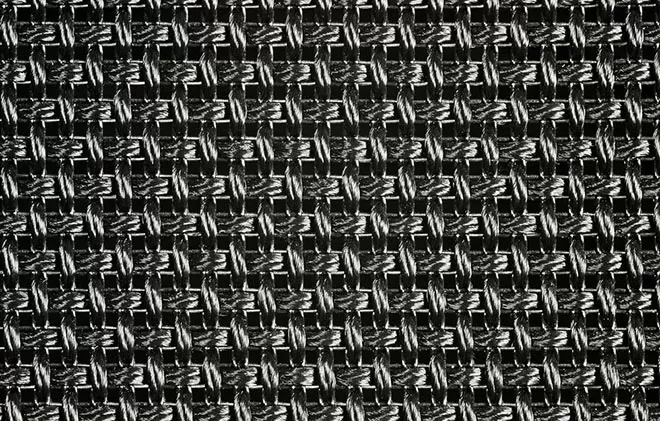Дек . 17, 2024 15:44 Back to list
galvanized wire 2mm factory
Understanding Galvanized Wire A Comprehensive Overview of 2mm Factory Production
Galvanized wire has become a staple in various industries due to its remarkable durability and resistance to corrosion. This wire, which is often employed in construction, agriculture, fencing, and crafting, is produced through a meticulous process that involves coating black iron wire with a layer of zinc. This article aims to delve into the specifics of producing 2mm galvanized wire in factory settings, exploring its benefits, applications, and the production process.
The Production Process
Producing 2mm galvanized wire begins with selecting high-quality steel wire as the base material. The black iron wire, commonly used for a variety of applications, is drawn down to the desired thickness of 2mm. This process involves several stages, including wire drawing, where the wire is pulled through a series of dies to reduce its diameter while increasing its length.
Once the wire is drawn, it undergoes a cleaning process to remove impurities and contaminants. This step is crucial as it ensures that the zinc coating adheres properly during the galvanization process. The cleaning is usually done through a combination of mechanical and chemical methods to achieve a surface free from rust, grease, and dirt.
Following the cleaning, the wire is subjected to the galvanization process. There are primarily two methods of galvanization hot-dip galvanization and electro-galvanization. In the hot-dip process, the cleaned wire is dipped into a molten zinc bath, allowing the zinc to bond with the steel. This method results in a thicker and more durable coating, making it suitable for applications requiring high corrosion resistance. Conversely, electro-galvanization involves the use of electrical currents to apply a thinner layer of zinc, which is often sufficient for less demanding environments.
After galvanization, the wire is cooled and then wound onto spools or coils, preparing it for packaging and distribution. Quality control is a vital part of the manufacturing process, ensuring that the galvanized wire meets industry standards in terms of thickness, tensile strength, and coating uniformity. Factories often conduct tensile tests and corrosion resistance assessments to guarantee that the wire would perform optimally in various environments.
Benefits of Galvanized Wire
The popularity of 2mm galvanized wire can be attributed to several key benefits. One of the primary advantages is its resistance to corrosion. The zinc coating acts as a barrier, protecting the underlying steel from moisture and environmental elements that could lead to rust. This makes galvanized wire particularly useful in outdoor applications.
galvanized wire 2mm factory

Additionally, galvanized wire boasts enhanced strength and durability. The wire can withstand significant tension without breaking, making it ideal for use in fencing, where maintaining structural integrity is crucial. Furthermore, galvanized wire is relatively low-maintenance compared to other materials, as it does not require regular painting or treatments to maintain its protective measures.
Galvanized wire is also versatile, with a wide range of applications. It is commonly used in agricultural settings for tying plants, constructing fences, and building trellises. In construction, it serves as reinforcement in concrete structures and is also employed for wiring in various electrical applications. Additionally, craftsmen and hobbyists utilize galvanized wire for crafting and DIY projects, given its flexibility and strength.
Applications Across Industries
The applications of 2mm galvanized wire span across multiple industries. In agriculture, farmers often use it to support plant growth and to construct animal enclosures. The durability of the wire ensures that it can withstand the pressures of outdoor conditions and heavy use without degrading.
In the construction industry, galvanized wire is essential for reinforcing concrete structures, providing stability and longevity. Its use in electrical work is also significant, as the wire is frequently found in the construction of fences, gates, and other types of barriers that demand strength and reliability.
The craft industry has also embraced galvanized wire, using it for jewelry making, sculpture, and various artistic expressions. Its pliability allows artisans to shape and mold the wire into intricate designs, while its strength ensures that the finished products are sturdy.
Conclusion
In summary, the production of 2mm galvanized wire in factories involves a detailed process from wire drawing to galvanization, ensuring a high-quality final product. The benefits of this wire, including its corrosion resistance, strength, and versatility, make it an invaluable resource across a wide array of industries. As demand for durable materials continues to rise, galvanized wire will likely maintain its position as a key player in the manufacturing and construction sectors, facilitating innovation and building better infrastructures.
-
Durable Welded Wire Mesh for Industry Factory - High Quality
NewsAug.26,2025
-
Leading Galvanized Steel Fence Factory | Durable & Secure Fencing
NewsAug.24,2025
-
Welded Wire Mesh for Industry Factory - Durable & Custom Solutions
NewsAug.23,2025
-
Your Galvanized Steel Fence Factory - Strong, Durable Solutions
NewsAug.22,2025
-
Welded Wire Mesh for Industry: Factory Direct & Custom Solutions
NewsAug.21,2025
-
Welded Wire Mesh for Industry | Factory Direct & Durable Solutions
NewsAug.19,2025

